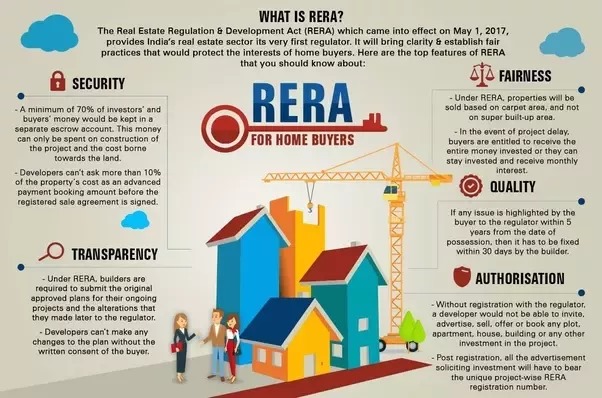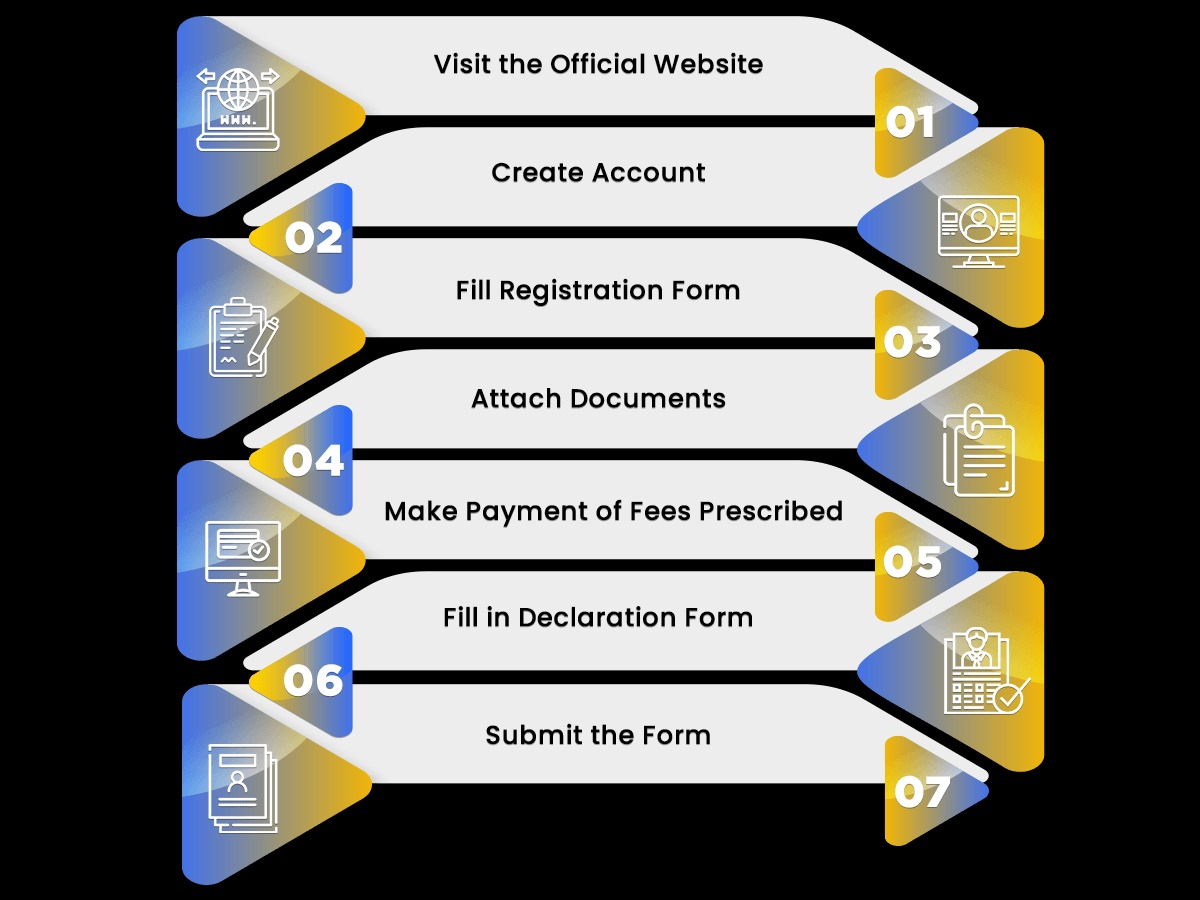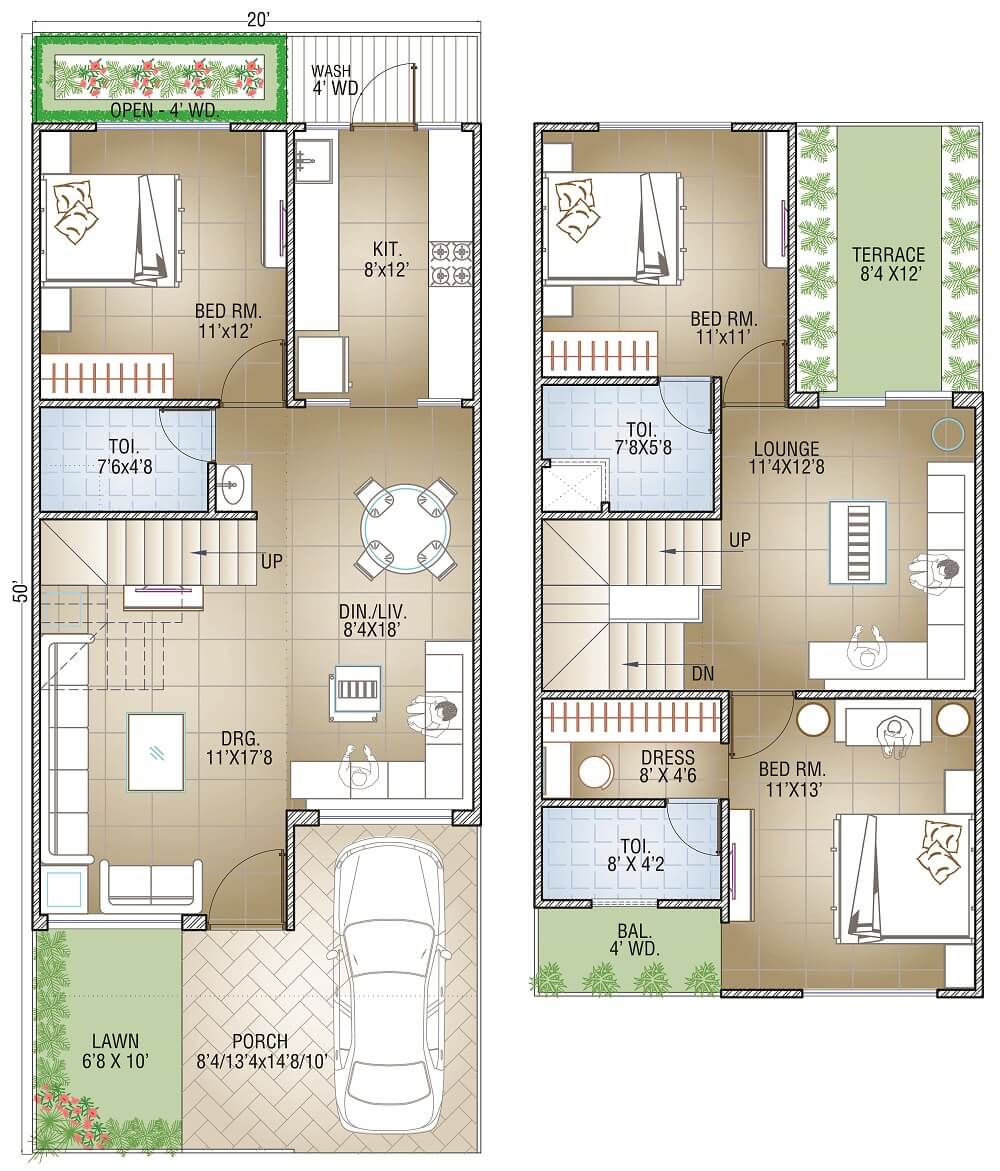
Introduction
In recent years, the Real Estate (Regulation and Development) Act, commonly known as RERA, has become a pivotal force in regulating the real estate sector in India. Indore, a bustling city in Madhya Pradesh, is no exception. This content pillar page aims to provide a detailed insight into RERA guidelines in Indore, outlining its significance for homebuyers, developers, and the overall real estate ecosystem.
Understanding RERA
RERA Demystified
The Real Estate (Regulation and Development) Act, commonly known as RERA, stands as a pivotal legislation in India, transforming the dynamics of the real estate sector. Enacted in 2016, RERA aims to bring transparency, accountability, and fairness to the real estate market, safeguarding the interests of homebuyers.
Objectives of RERA
1. Protecting Homebuyers
RERA places paramount importance on shielding the rights and interests of homebuyers. It achieves this by imposing stringent regulations on developers and promoting fair practices.
2. Ensuring Transparency
One of the primary goals of RERA is to enhance transparency in real estate transactions. This is accomplished through mandatory project registrations and the disclosure of comprehensive project details.
3. Curbing Unethical Practices
RERA acts as a deterrent against fraudulent activities in the real estate sector. It discourages developers from engaging in unfair practices by establishing clear norms and consequences for non-compliance.
Operational Framework
RERA operates by establishing regulatory authorities in each Indian state and union territory. These authorities are entrusted with overseeing and regulating the real estate sector within their jurisdictions. Developers are required to register their projects with these authorities, providing detailed information about the project, including timelines, finances, and legal aspects.
1. Protection for Homebuyers
RERA introduces several protective measures for homebuyers. It mandates that developers deposit a percentage of the project funds in a separate escrow account. This ensures that the funds are dedicated solely to the designated project, minimizing the risk of diversion or mismanagement.
2. Consumer-Friendly Features
RERA introduces a slew of consumer-centric features, including:
⦿ Advance Payment Protection
RERA prohibits developers from demanding more than a certain percentage of the total property cost as an advance before signing a sale agreement.
⦿ Timely Project Completion
Developers are bound by strict timelines for project completion, and any delays result in compensation to homebuyers.
⦿ Empowering Homebuyers
RERA empowers homebuyers by providing them with a legal framework to address grievances. The Act establishes a clear dispute resolution mechanism, ensuring that homebuyers have recourse in case of disputes with developers.
Evolution of RERA in India
The need for a comprehensive regulatory framework in the real estate sector became increasingly apparent as the industry witnessed various issues, including project delays, lack of transparency, and unscrupulous practices by some developers. Recognizing the urgency to protect the interests of homebuyers and streamline the real estate market, the Government of India embarked on the journey to formulate a dedicated legislation – the genesis of RERA.
RERA Demystified
The Real Estate (Regulation and Development) Bill was introduced in the Indian Parliament in 2013. After undergoing extensive deliberations and revisions, the bill gained approval from both houses and received the President’s assent in 2016, officially becoming the Real Estate (Regulation and Development) Act.
Key Features of the Initial Act:
The initial version of RERA focused on:
1. Mandatory Project Registration
Developers were required to register their projects with regulatory authorities, providing detailed project information.
2. Escrow Accounts
RERA mandated developers to deposit a percentage of project funds in a separate escrow account to ensure proper utilization.
3. Timely Project Completion
Developers were held accountable for completing projects within stipulated timelines.
Subsequent Amendments:
Post-enactment, RERA underwent amendments to address practical challenges and enhance its effectiveness. Amendments focused on:
1. Inclusion of Ongoing Projects
Initially, ongoing projects were exempted, but subsequent amendments brought them under the purview of RERA, ensuring a more comprehensive regulatory framework.
2. Definition Refinements
Amendments refined definitions and terms, offering clarity on various aspects, including carpet area and project classifications.
3. Enhanced Consumer Protection
Amendments strengthened provisions related to advance payments, project delays, and dispute resolution, further safeguarding the interests of homebuyers.
Current Form of RERA
As of its current form, RERA stands as a robust legal framework, ensuring transparency, accountability, and fair practices within the real estate sector. The Act continues to evolve, with periodic amendments reflecting the dynamic nature of the real estate landscape and the evolving needs of stakeholders.
Key Components of RERA Guidelines
Rationale for Project Registration
The registration requirement serves multiple purposes:
1. Consumer Protection
By registering their projects, developers provide potential buyers with access to crucial project details, fostering informed decision-making.
2. Regulatory Oversight
RERA authorities use project registration information to monitor and regulate the real estate market, ensuring compliance with established norms.
3. Legal Compliance
Project registration is a legal requirement, and failure to do so can result in penalties for developers.
Key Components of Project Registration:
1. Project Details
Developers must submit comprehensive details about the project, including its location, size, timeline, and proposed amenities.
2. Financial Disclosures
Submission of financial details, cost estimates, and revenue projections is integral to the registration process.
3. Developer Information
Developers must provide information about their track record, previous projects, and financial stability.
Standardized Carpet Area Calculation: Ensuring Fairness in Property Transactions
RERA introduces a standardized approach to calculating the carpet area of properties, aiming to eliminate ambiguity and promote fairness in real estate transactions.
Significance of Carpet Area Calculation:
1. Clarity for Homebuyers
Carpet area is defined as the net usable floor area within the walls of a property, excluding common areas. This definition offers clarity to homebuyers about the actual space they will be utilizing.
2. Consistency in Pricing
Standardized carpet area calculation ensures that developers price properties uniformly, enabling buyers to compare different projects based on a common metric.
3. Avoiding Manipulation
RERA’s emphasis on carpet area calculation discourages developers from manipulating figures, promoting transparency in property transactions.
Advance Payment Norms: Balancing Financial Security and Fair Practices
RERA guidelines address the issue of advance payments, seeking to strike a balance between ensuring financial security for developers and safeguarding the interests of homebuyers.
Key Aspects of Advance Payment Norms:
1. Defined Stages for Payments
RERA mandates developers to link payments to the completion of specific construction milestones. This phased payment approach minimizes financial risks for buyers.
2. Limit on Advance Payments
Developers cannot demand excessive advance payments, limiting the financial burden on homebuyers and protecting them from potential losses.
3. Financial Safeguards
RERA provisions ensure that developers use funds collected for a specific project exclusively for that project, preventing diversion and mismanagement.
Project Delays and Compensation: Upholding Buyer's Interests
RERA includes robust provisions to address project delays and provides compensation mechanisms, offering protection to homebuyers who may face unforeseen delays in possession.
Compensation Mechanisms:
1. Timely Delivery Assurance
RERA holds developers accountable for project completion within stipulated timelines, minimizing the likelihood of delays.
2. Compensation Calculation
In the event of project delays, developers are liable to compensate buyers based on predetermined parameters, ensuring fair compensation for the inconvenience caused.
3. Buyer's Remedies
Homebuyers can seek legal recourse and compensation through RERA authorities in case of project delays, reinforcing their rights and interests.
RERA's Impact on Indore Real Estate: Transforming the Market Dynamics
Boosting Buyer Confidence
The introduction of RERA in the Indore real estate landscape has played a pivotal role in enhancing buyer confidence. By establishing a robust framework for transparency and accountability, RERA ensures that homebuyers receive accurate information about projects, reducing the risks associated with property transactions. The comprehensive disclosure requirements under RERA empower buyers with critical details, fostering a sense of trust and confidence in the real estate market.
Developer Accountability
RERA has ushered in a paradigm shift in the behavior of developers, emphasizing responsible and accountable practices. The regulatory framework laid out by RERA requires developers in Indore to adhere to strict guidelines, from project registration to financial disclosures. This increased scrutiny has led developers to adopt more transparent and ethical practices, thereby instilling a greater sense of reliability among potential homebuyers. The accountability enforced by RERA serves as a deterrent against malpractices, promoting a healthier and more trustworthy real estate ecosystem in Indore.
Impact on Property Prices
The potential impact of RERA guidelines on property prices in Indore is a subject of keen interest and analysis. RERA’s emphasis on transparency, quality, and adherence to timelines may contribute to a stabilization of property prices. The standardized practices mandated by RERA, including carpet area calculation and regulated advance payments, could lead to a more balanced pricing structure. Additionally, the assurance of timely project completion and the availability of compensation in case of delays could influence property prices positively. Overall, RERA’s influence on property prices is intertwined with its broader goal of fostering a stable and buyer-friendly real estate market in Indore.
RERA's Role in Shaping Indore's Real Estate Future
As Indore’s real estate market undergoes transformation, RERA stands as a catalyst for positive change. The boosted buyer confidence, heightened developer accountability, and potential impact on property prices collectively contribute to a real estate landscape that is more transparent, trustworthy, and conducive to sustainable growth. Indore, with RERA at its helm, is poised for a real estate future characterized by responsible practices and increased consumer satisfaction.
Navigating RERA as a Homebuyer: Your Roadmap to Informed Decisions
Checklist for Homebuyers
For homebuyers in Indore, navigating the Real Estate (Regulation and Development) Act (RERA) is a crucial aspect of making informed property decisions. To simplify this process, a comprehensive checklist has been crafted to guide homebuyers effectively. The checklist encompasses key considerations such as verifying project RERA registration, understanding the carpet area calculation, and reviewing the builder’s track record. It serves as a handy tool for homebuyers to ensure that their investment aligns with the regulatory standards set by RERA, promoting transparency and mitigating risks.
Understanding RERA Complaint Mechanism
Empowering homebuyers with the knowledge of the RERA complaint mechanism is paramount for ensuring a fair and efficient resolution of grievances. This section elucidates the process for filing complaints under RERA, providing a step-by-step guide. Homebuyers gain insights into the documentation required, the designated authority for filing complaints, and the timelines involved in the resolution process. Understanding the RERA complaint mechanism equips homebuyers with the tools to seek redressal in case of project delays, misleading information, or any other violations of RERA guidelines. This knowledge reinforces the protective measures offered by RERA, making the homebuying journey smoother and more secure.
Navigating RERA: Empowering Homebuyers
As a homebuyer in Indore, navigating RERA is not just a legal requirement but a strategic move towards a well-informed investment. The checklist and understanding of the RERA complaint mechanism provided in this guide empower homebuyers to take charge of their decisions, ensuring compliance with regulatory standards and safeguarding their interests. Armed with this knowledge, homebuyers can confidently explore the real estate market in Indore, secure in the understanding that RERA serves as a robust framework for their protection and the overall health of the real estate sector.
RERA Registration Process

Conclusion
In conclusion, this content pillar page serves as a comprehensive guide for anyone seeking to understand RERA guidelines in the context of the dynamic real estate landscape in Indore. Whether you are a homebuyer, developer, or a real estate enthusiast, unraveling the complexities of RERA is crucial for making informed decisions and contributing to a transparent and robust real estate market in Indore.


